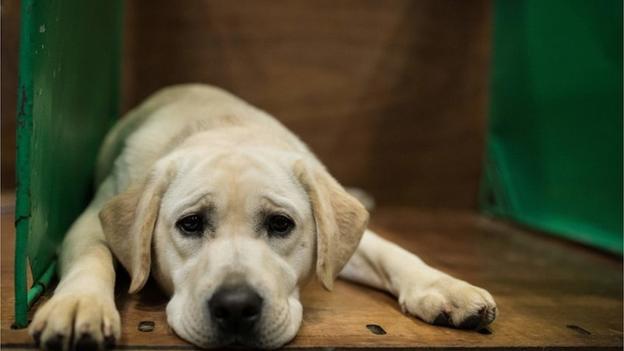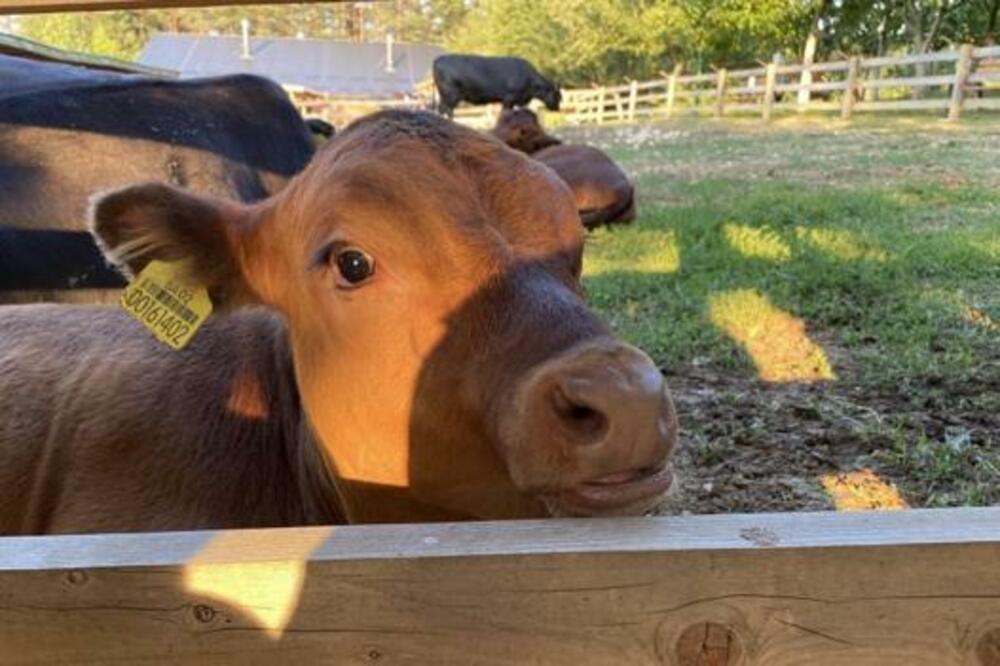Getting up early and driving about 100 kilometers a day to the frightened owners of domestic animals who expect help.
This is how the working day of Banet Davidović, a veterinarian from Leštan, a suburb of Belgrade, goes.
"I used to get up during the night, because people call me when a cow calves or a sheep is sick.
"It's hard, but it's love that has become work," he tells the BBC in Serbian on the occasion of World Veterinarian Day, which is celebrated on the last Saturday in April.
- The famous rescue dog is retiring
- Why are there no guide dogs in Serbia?
- What caused the deaths of the dogs in Novi Sad and whether it was poisoning
Now Bane Davidović's phone rings less often.
"There aren't that many agricultural households, in the place where I work there are fewer and fewer livestock, so the earnings are significantly lower.
"There is a difference between the veterinary medicine intended for pets, to which people are emotionally attached, and the economic one focused on the treatment of large animals," adds the village veterinarian.
Caring for pets and their owners
The clinic of veterinarian Vladimir Terzin in Belgrade is mostly visited by dogs, cats and birds, but also the occasional lizard.
Someone coughs, someone has an injured paw, and there are also more serious cases, such as strokes or tumors.
"The work of a veterinarian is tiring, because at the same time we treat infectious diseases, take care of the internal organs of animals, but also repair fractures and injuries," says Terzin.
It not only helps the animals, but also the owners.
"Our patients don't speak, so they can't tell what's wrong.
"Their frightened owners are not sure if their furry friends will survive, so the vet's role is to reassure and support them," he adds.
In the city they are treated, in the countryside they are sometimes slaughtered
Although they do the same job, Bane and Vladimir do not have the same routine: one spends his days on the field, and the other in the doctor's office.
"I'm not tired of work, but traveling from one house to another is very tiring," says Davidović.
Everyone is ready to treat pets, while domestic animals are easily given up, he says somewhat bitterly.
"When they get seriously ill, they simply go to forced slaughter".
Vladimir Terzin believes that the work of rural and urban veterinarians differs "only in what types of animals are treated".
Among the most stressful moments in his career, he singles out rescuing poisoned dogs.
"I feel the same as pet owners, but I have to put my emotions aside to work," says Terzin.
"Veterinarians treat the whole world"
In the past, medicine intended for humans was far more advanced than that which deals with animals, explains Siniša Gatarić, a veterinarian from Prnjavor, in Bosnia and Herzegovina.
Now that has changed, so ultrasound for imaging internal organs, blood count analysis and special methods for treating animal joints are part of the daily routine, he adds.
Veterinarians not only treat animals, but also make sure that products of animal origin are checked.
That's why we use the term "unified health" for veterinary medicine and medicine, explains Gatarić.
"Pets can also cause diseases in people or transmit infections to them, so it is important to think about their health in that context as well.
"That's why we say that doctors treat people, and veterinarians treat the whole world," he adds.
Some of the latest findings from veterinary medicine include: recognition eye diseases in horses with the help of artificial intelligence, but also informacije that live meat can also affect dogs' resistance to antibiotics.
"The most important innovations in science concern the observation of animal genes and monitoring their resistance to infectious and non-infectious diseases," explains Sava Lazić, director of the Veterinary Science Institute in Novi Sad.
TikTok pet care recommendations
From advice for protecting pets from ticks, to the answer to whether a wardrobe for furry friends is a fashion or a necessity - all this is the content of the TikTok and Instagram profile of veterinarian Goran Paraš from Banja Luka.
"It's part of the process of educating about animal care, which I've been doing for more than 25 years.
"I wanted to introduce people to the diseases that pets can transmit," Paraš told the BBC in Serbian.
Through practice, he also saw that owners often do not have the proper conditions for raising four-legged friends.
That's why he now addresses them on social networks through short videos.
"I decided to give a concise answer to people who have asked me similar questions during my many years of work," he explains.

Stressful work, driven by love
Although their work sometimes creates challenges and can be dangerous due to the capricious reactions of their furry patients, these animal doctors know that they have chosen the right path.
"Animals are smart and feel when someone wants to help them.
"If I were born again, I would be a veterinarian again," says Vladimir Terzin with a smile.
Look at itand this one video:
Follow us on Facebook, Twitter, Instagram, YouTube i Viber. If you have a topic proposal for us, contact us at bbcnasrpskom@bbc.co.uk
Bonus video:




